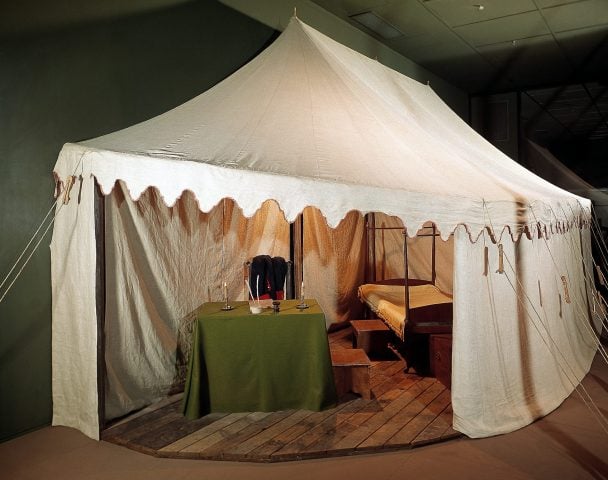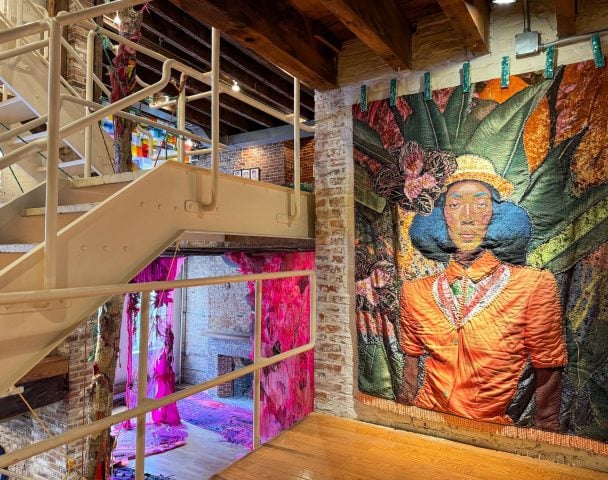Auctions
A Hoard of 122 Anglo-Saxon Coins Could Fetch a Pretty Penny at Auction
The coins were discovered in Essex by a pair of metal detectorists.
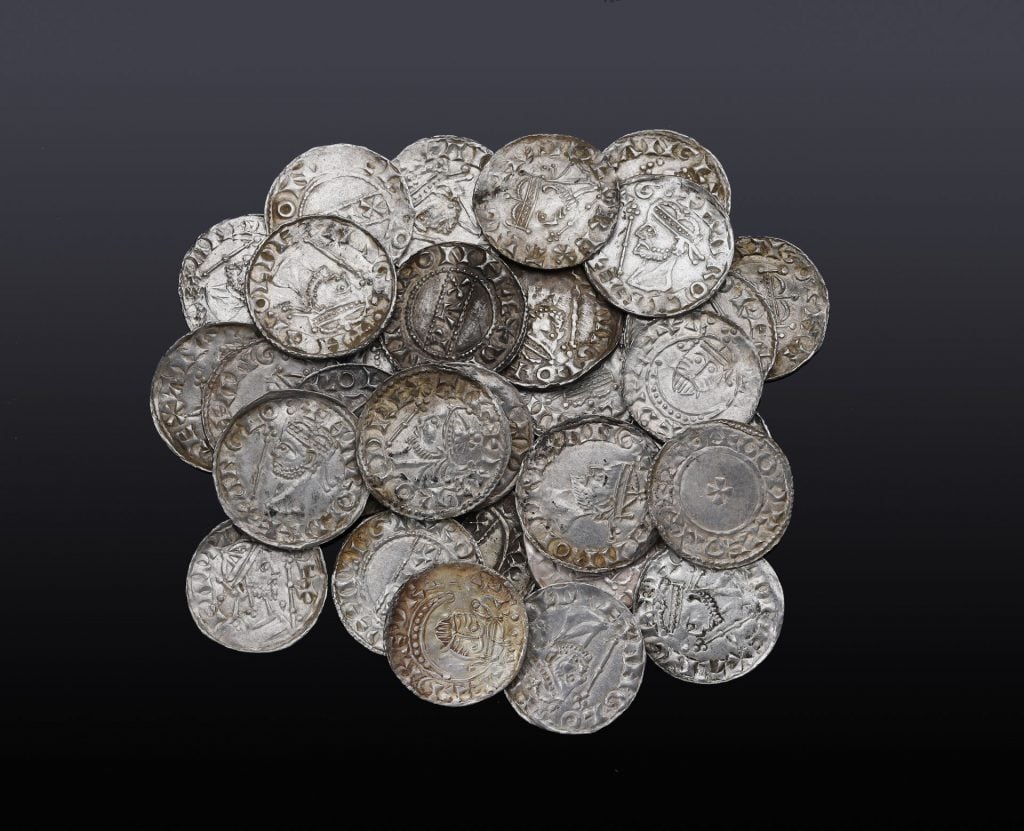
A hoard of more than 100 Anglo-Saxon coins discovered by two metal detectorists in a field near Braintree, Essex, is headed to auction at Noonans Mayfair on February 21. Believed to have been buried in 1066 and owned by an individual who died during the Battle of Hastings, the coins are tagged with the high estimate of £180,000 ($227,000).
The coins were each worth 12 shillings, a considerable sum back in 11th century, leading Noonans’s coin expert Bradley Hopper to hypothesize that the reason they were abandoned was due “some great personal misfortune” such as the death of their owner in the conflict. Hopper added, though, that “it was perhaps quite common for people who had access neither to banks nor vaults to conceal their wealth in the ground, even in times of peace.” All bar two of the coins were minted within five years of 1066.
A small selection of coins from the hoard were bought by Colchester Museum and the Fitzwilliam Museum in Cambridge, following the protocol of the 1996 Treasure Act. The purchased coins include two 11th-century Byzantine coins.
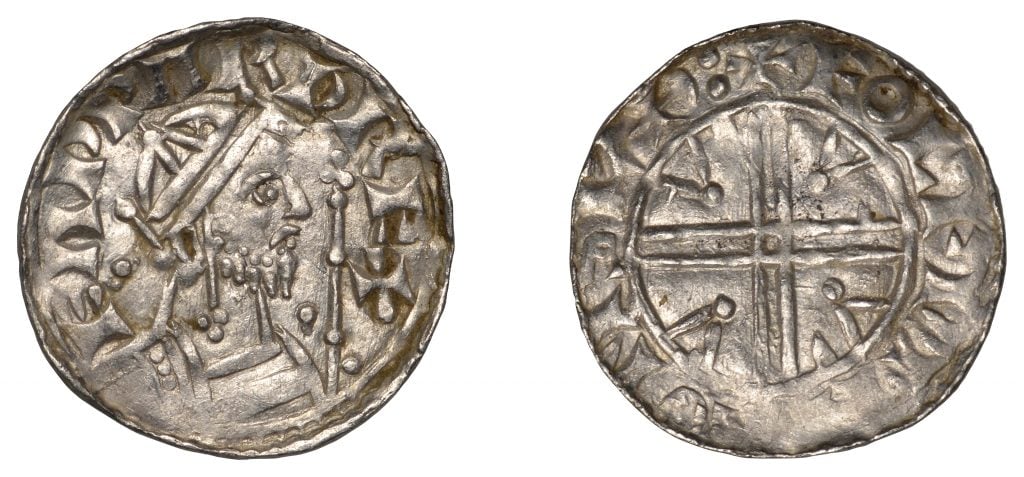
Lot 1028 – Penny, Sudbury. Image courtesy of Noonans.
The metal detectorists found the majority of the coins in 2019 over the course of a few days, all within a 100-foot radius, some just inches beneath ground’s surface. A further 70 coins were found when the site was revisited in 2020. The coins were minted in various southern English towns and cities, including London, Cambridge, Canterbury, and Hastings.
The coins date from the reigns of Edward the Confessor and Harold II, the last two Anglo-Saxon kings of England. Harold was killed during the 1066 Battle of Hastings, seen on the Bayeux Tapestry receiving a fatal arrow through the eye. His death marked the victory of William the Conqueror, the first Norman king of England.
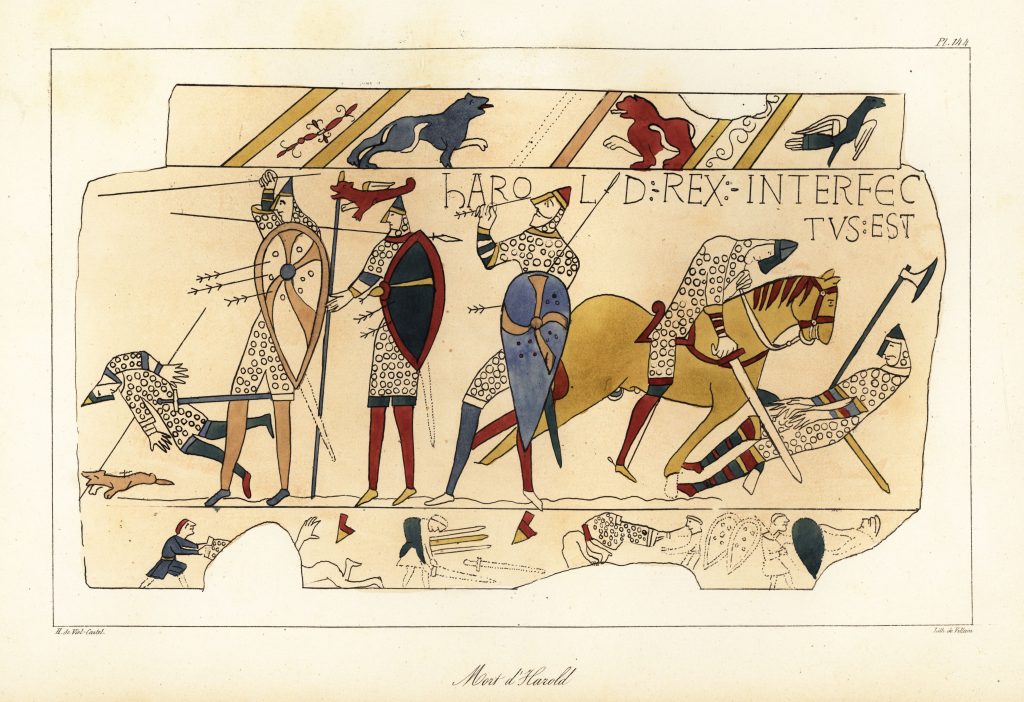
Scene from the Bayeux Tapestry depicting the Norman Conquest in 1066. Photo: Florilegius/Universal Images Group via Getty Images.
The detectorists have kept several coins, with 122 of the remaining relics headed to Noonans. The proceeds will be shared between the finders and the owner of the land on which the coins were discovered. Some coins included in the sale are exceedingly rare and could fetch £6,000 ($7,600) individually.
Hopper said that Noonans is “particularly fortunate that the auction catalogue contains not only the rarest and most academically interesting English coins from the Braintree Hoard, but also those pieces in the finest state of preservation.” He hopes that the auction will “promote further research into this wonderful coinage.”
Follow Artnet News on Facebook:
Want to stay ahead of the art world? Subscribe to our newsletter to get the breaking news, eye-opening interviews, and incisive critical takes that drive the conversation forward.


